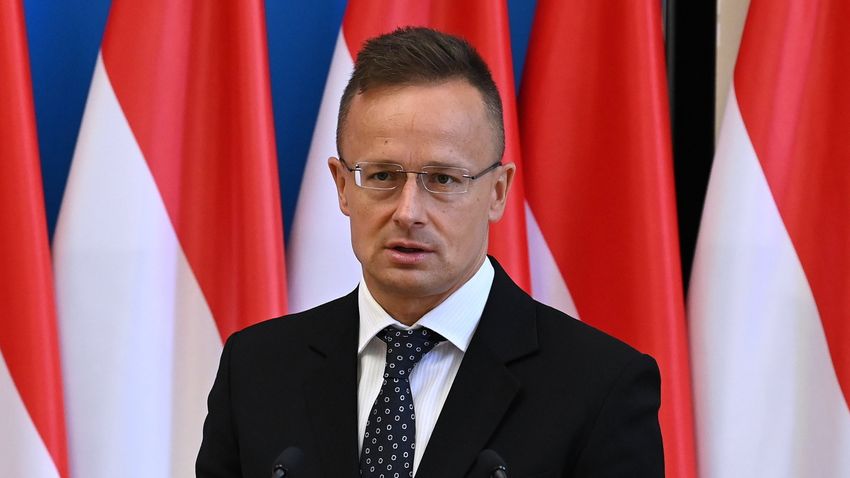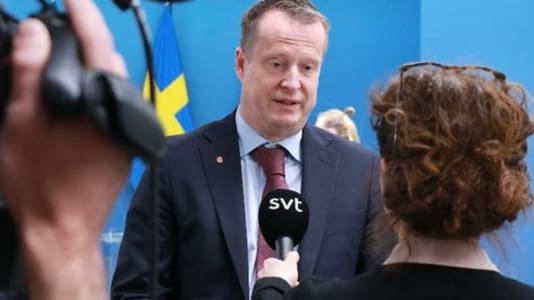Hungary’s Foreign Minister Péter Szijjártó was a guest of U.S. channel Fox News on Tuesday, joining Maria Bartiromo in an interview he shared on his social media platforms.
Szijjártó has formed part of the Hungarian delegation stateside this week ahead of Prime Minister Viktor Orbán’s appearance at the Conservative Political Action Conference (CPAC) this weekend. He joined the Hungarian prime minister for a meeting with former U.S. President Donald Trump in Bedminster, New Jersey, before undertaking his media obligations.
In the interview, which Szijjártó described as a “talk about reality” when posting on his Facebook page, the Hungarian foreign minister was quizzed on his country’s reliance on Russian gas, Hungary’s humanitarian response to the war in Ukraine, and how it continues to combat illegal immigration primarily from its southern border.
Hungary’s position on Russian energy supplies
Szijjártó defended the Hungarian government’s decision to continue purchasing energy supplies from Russia, insisting that given the country’s geographical reality, there really isn’t another option available to them.
“In central Europe, the geography and the infrastructure determines our opportunities when it comes to securing the safe supply [of energy]. We are a landlocked country and if you look at the infrastructure in Central Europe, unfortunately we have no other choice than relying on Russian sources,” Szijjártó told viewers.
The foreign minister revealed the country would have had another opportunity to utilize other sources of energy “if ExxonMobil and OMV had decided to export gas from a big gas field on the Black Sea in Romania, but they decided to leave the project,” he said. “So if you want to buy big quantities of gas in Central Europe, Russia is the only source.”
Szijjártó told Fox News that the country’s storage facilities for gas reserves were “a little over 50 percent” full. He said this “would be satisfactory under normal circumstances,” but in the exceptional situation Europe finds itself in, the country needs another 700 million cubic meters of natural gas reserves to see itself through a tumultuous winter.
In response to Bartiromo’s concerns that Russia is “bullying Europe” and exploiting the continent’s reliance on its energy supplies and resorting to “blackmail” while it creates “death and destruction in Ukraine,” Szijjártó said his country’s position regarding the war was “very clear.”
“Believe me, since we are a neighboring country to Ukraine, we are super interested in peace,” Szijjártó insisted, revealing Hungary had now welcome a “tremendous flow of refugees” with current estimates placing the total figure to have arrived in Hungary since Feb. 24 at 870,000.
“We are confronted with the economic challenges, so we are absolutely interested in peace,” the Hungarian foreign minister reiterated, “but when it comes to energy supply, as a government of a country, we are having an obligation to ensure the safe supply of the country,” he added. Szijjártó also admitted that his country was in a “unilaterally defenseless position” on its reliance on Russian energy due to the lack of alternative infrastructure in the region.
“The long term contract we have signed with the Russians has been respected by all parties so far, and I hope that this is going to remain the situation,” Szijjártó added.
The war in Ukraine
In response to a line of questioning on the economic consequences across Europe of the Russian invasion of Ukraine, Szijjártó said the war was having a “tremendous impact on Europe” in terms of the economy.
“That was the reason why we vetoed the introduction of the global minimum tax in Europe,” the foreign minister explained, referring to Hungary’s defiance of harmonization of corporate tax rates across the West, a move that both Washington D.C and Brussels are in favor of.
It would mean that businesses would face an “increased tax burden” that would “cause a lot of trouble” and put “hundreds of thousands of jobs at risk,” Szijjártó said.
“We understand that has pissed off the current administration here in the United States, although our position had nothing to do with the domestic position here. If we had given our consent to the global minimum tax, we would have put hundreds of thousands of jobs at risk in Hungary and that is something we want to avoid.”
Illegal immigration taking its toll
In addition to the 870,000 Ukrainian refugees that Hungary has accommodated in the past few months, Szijjártó reminded viewers that the country is continuing to face an uphill battle on its southern border, which he declared is “under siege as more than 130,000 illegal migrants have been stopped by our border guards [this year].
“This is a huge number, already higher than last year entirely,” Szijjártó said, adding that border security “demands a lot of effort, there is 24-hour surveillance.
“We stick to our own right to make a decision on our own as to who has the right to enter the territory of our country,” Szijjártó told viewers, a position the foreign minister was congratulated on by Bartiromo
“You are, and the people of Hungary, have gone above and beyond,” the host said in conclusion of the interview. “We appreciate all of your efforts,” she added.






